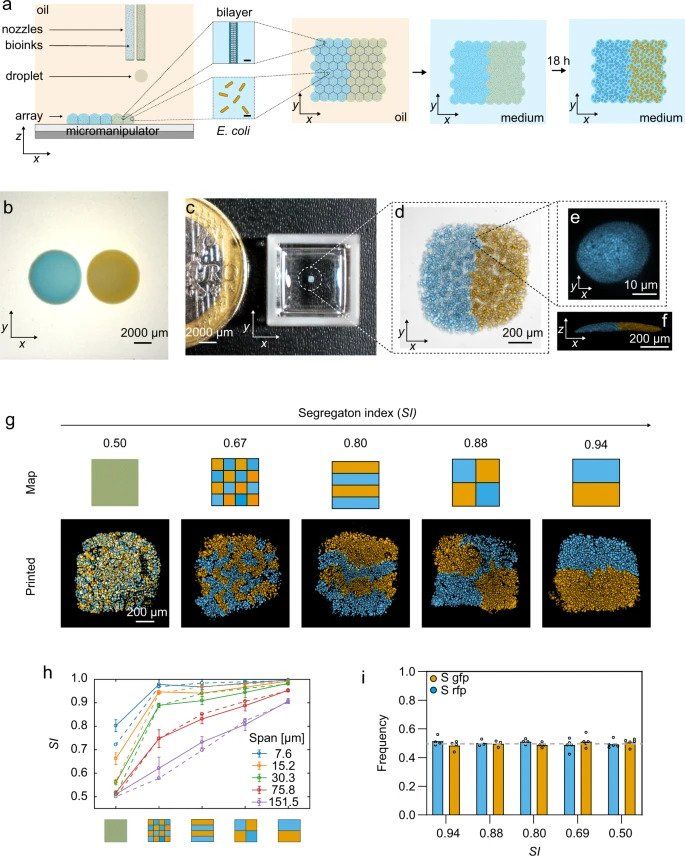Researchers from the University of Oxford have developed a droplet-based 3D printing method capable of customizing bacterial genotypes at the micron-scale, which could drive major shifts in ecology.
Using droplet printing, the researchers were able to print strains of the gut bacterium Escherichia coli, also known as E. coli, and alter its spacing to create customized communities of the bacteria in order to see how strains react to each other when placed side-by-side in specific patterns.
Being able to manipulate the arrangement of such bacteria at the micron-scale enables greater observation and understanding of its behavior, and could even be “critical for ecological outcomes”, the researchers claim.
